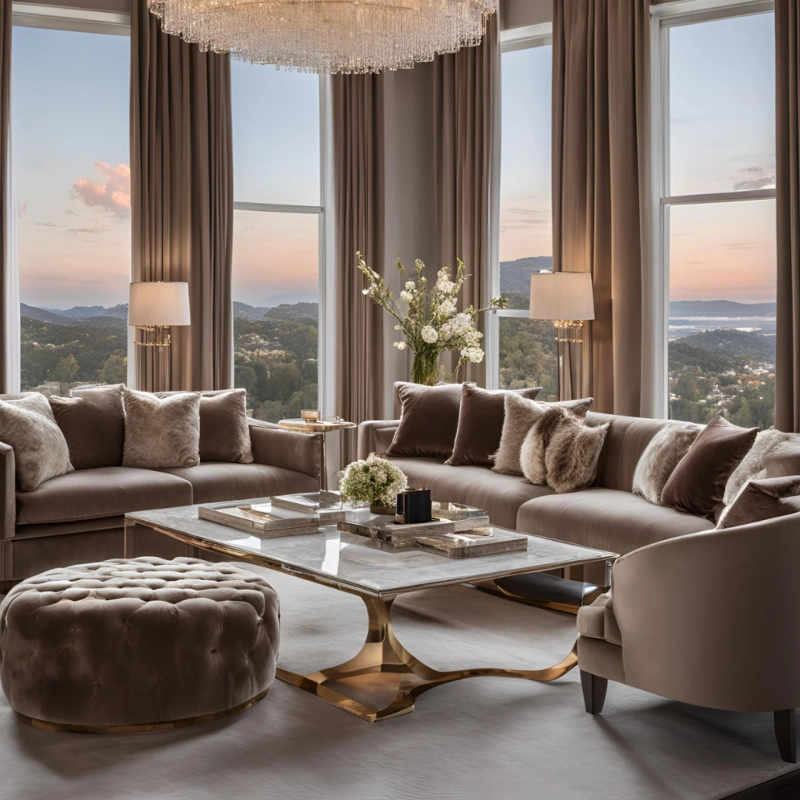Modular furniture design is transforming the hospitality industry by offering flexibility, functionality, and aesthetics that cater to diverse guest needs and preferences. Here’s how it enhances hotel guest experiences:
1. Personalized Guest Spaces
Modular furniture allows hotels to adapt rooms to the specific preferences of guests. For example, a family can have a room with added sleeping arrangements, while a business traveler can have a workspace-focused setup. In this regard, specifically custom outdoor furniture or indoor furniture create a sense of ownership and comfort for guests. Thus, comfortable and visually appealing furniture improves the overall guest experience, making the stay more memorable.
2. Maximized Space Utilization
Hotels can efficiently utilize room space by incorporating modular pieces like foldable beds, stackable chairs, or storage-integrated seating. Multi-functional furniture (e.g., a sofa that converts into a bed) ensures every inch of the room serves a purpose, enhancing guest convenience. If there are small spaces, custom outdoor furniture pieces can be designed to fit perfectly into irregular or small spaces, maximizing utility without compromising on style.
3. Seamless Functionality for Diverse Needs
Custom hospitality outdoor furniture can cater to various guest demographics, including solo travelers, families, or those with accessibility needs. If you incorporate easily adaptable setups that can transition from a leisure-focused to business-ready environment.
Undoubtedly, thoughtfully designed furniture meets the specific needs of a target demographic. For instance, ergonomic desks for business travelers or multi-functional furniture for families. Such a high level of customization helps create a “home away from home” atmosphere, fostering guest loyalty.
4. Aesthetic Appeal and Modern Ambiance
Contemporary modular designs offer sleek, clean lines and creative configurations that elevate the visual appeal of hotel spaces. Such unique furniture designs also create a sense of exclusivity, differentiating the hotel from competitors. This modern aesthetic contributes to a positive first impression and a memorable stay.
5. Flexibility for Communal Areas
In lounges, conference rooms, or dining areas, custom hospitality outdoor furniture supports dynamic arrangements to accommodate group sizes, events, or activities. Movable partitions and modular seating enhance communal spaces' functionality without sacrificing style.
6. Sustainability and Cost-Effectiveness
Each piece of modular furniture has a longer lifespan because it is generally constructed from sturdy materials that can withstand frequent use. For hotels trying to strike a balance between sustainability and style, this longevity minimizes waste and lessens the need for frequent replacements. The custom outdoor furniture made with sustainable materials and eco-conscious designs perfectly align with growing guest preferences for environmentally friendly accommodations.
7. Enhanced Brand Identity
Modular furniture can be customized to reflect the hotel’s brand identity, creating a cohesive guest experience. Moreover, it can incorporate brand colors, logos, or design elements that create a cohesive aesthetic across all guest spaces. Remember that unique configurations and styles can set a hotel apart in a competitive market.
8. Using Modular Furniture as a Competitive Advantage
Modular furniture has evolved from being merely convenient to becoming a strategic design option in the hospitality sector in recent years, following broader trends in the sector toward adaptability and sustainability.
With their cutting-edge modular solutions, businesses like Buildz and North88 Outdoor are setting the standard for eco-friendly and efficient hotel architecture. Through collaboration with businesses that value modular design, hotels can integrate sustainable practices into their design process, cutting waste and promoting eco-friendly operations.
Conclusion
Hotels that invest in modular furniture design offer a versatile and customizable guest experience, meeting diverse needs while ensuring comfort, functionality, and visual appeal. This adaptability is particularly valuable in a rapidly evolving hospitality landscape where guest expectations continuously change.


